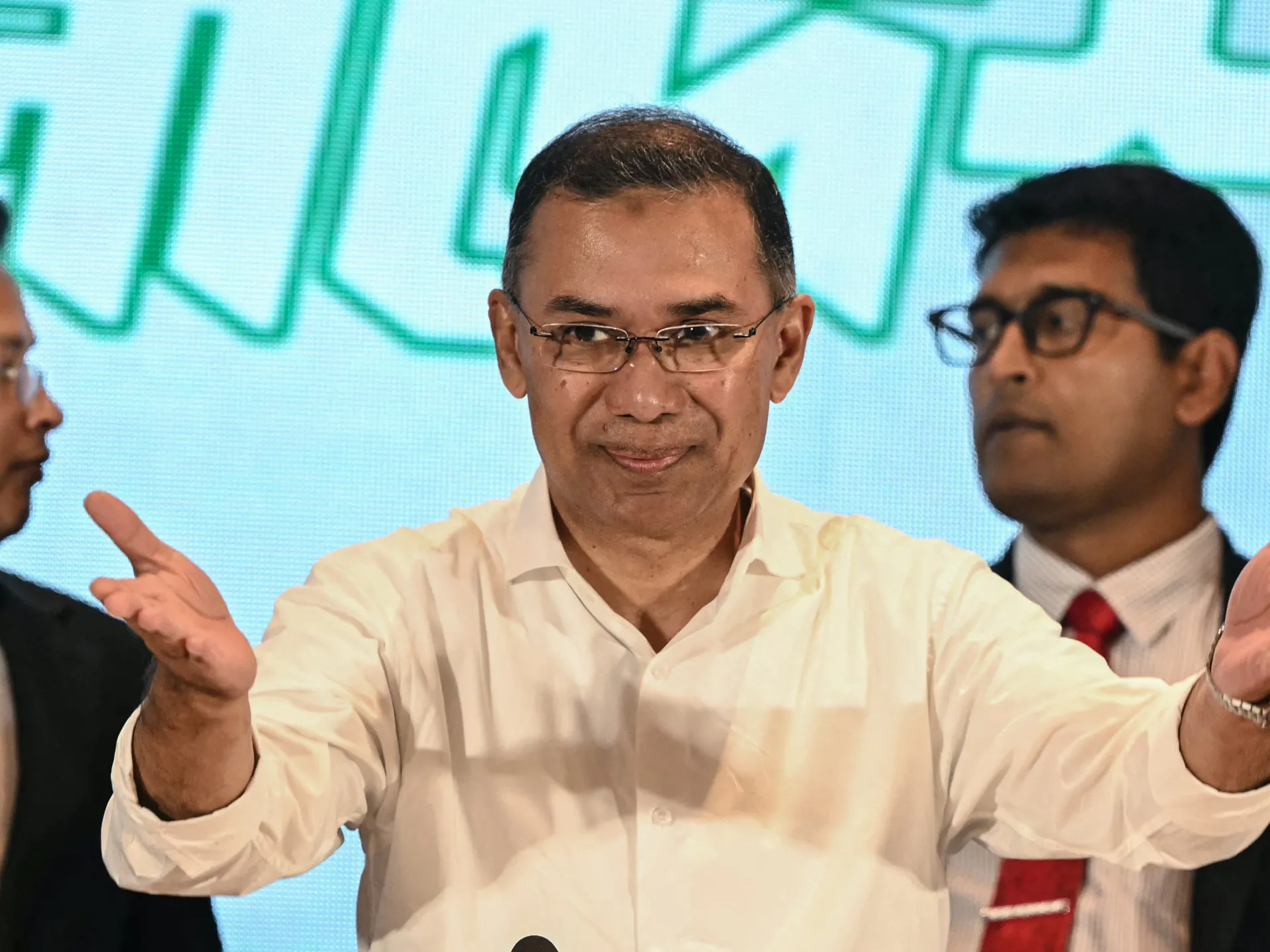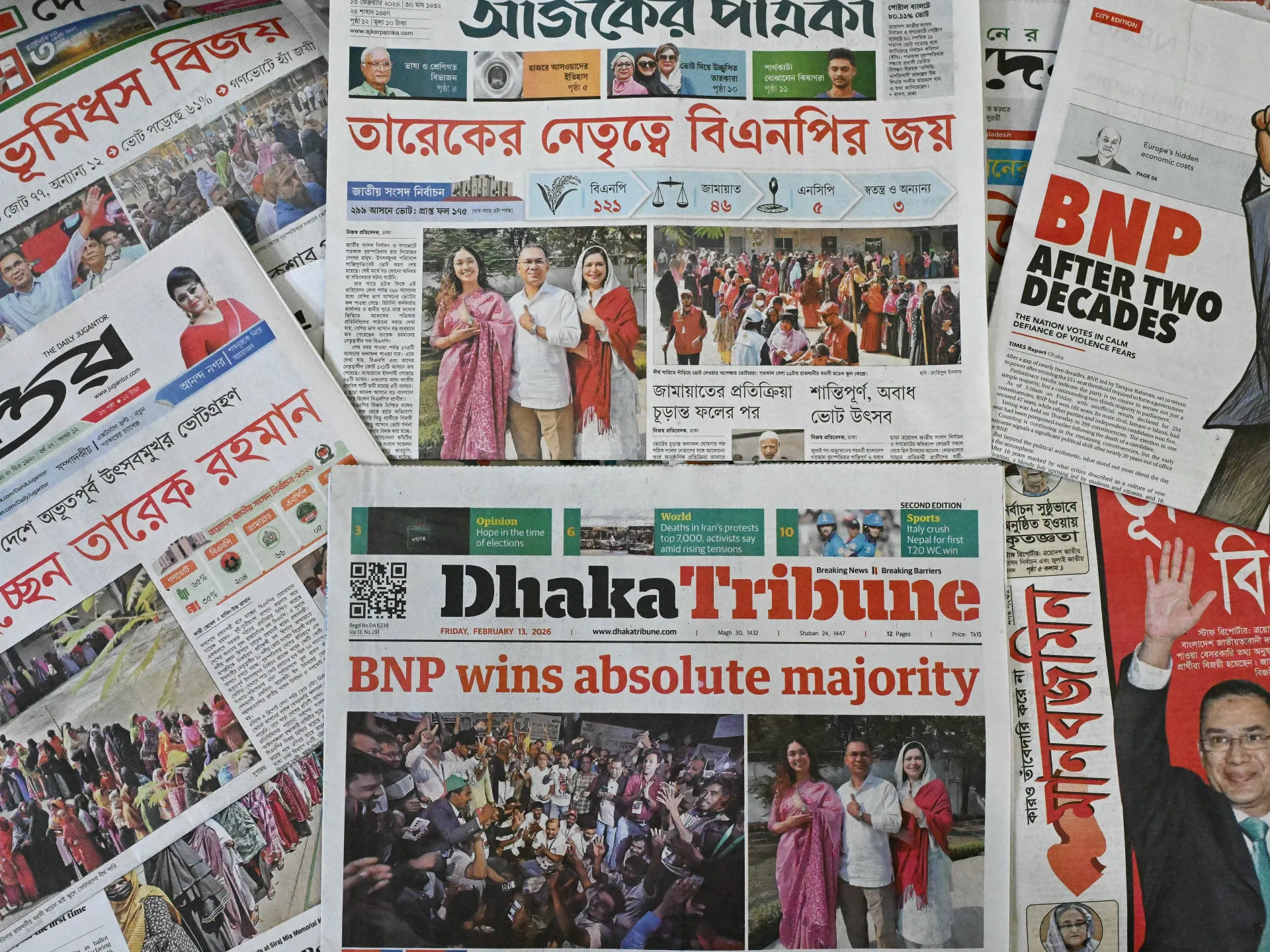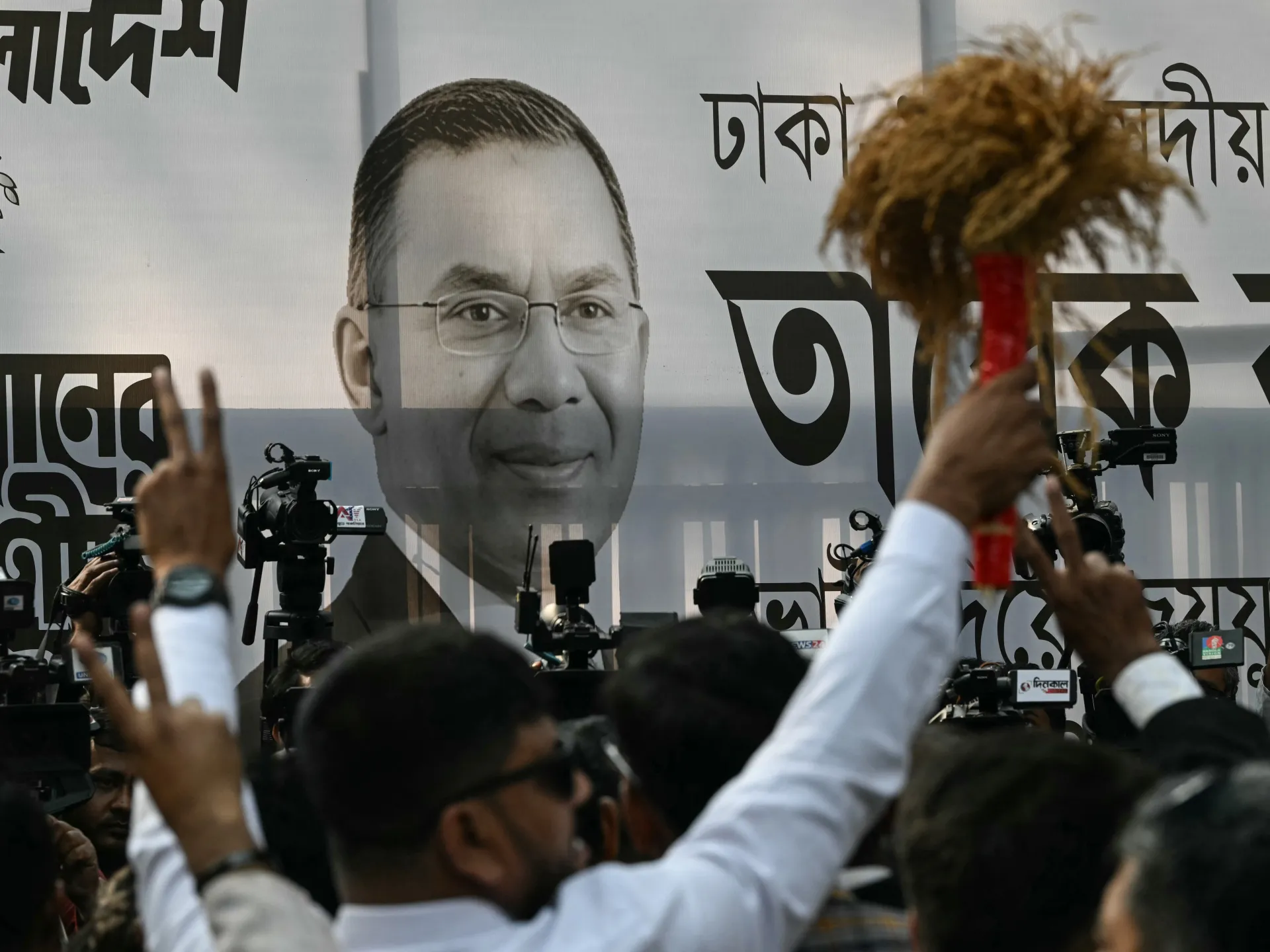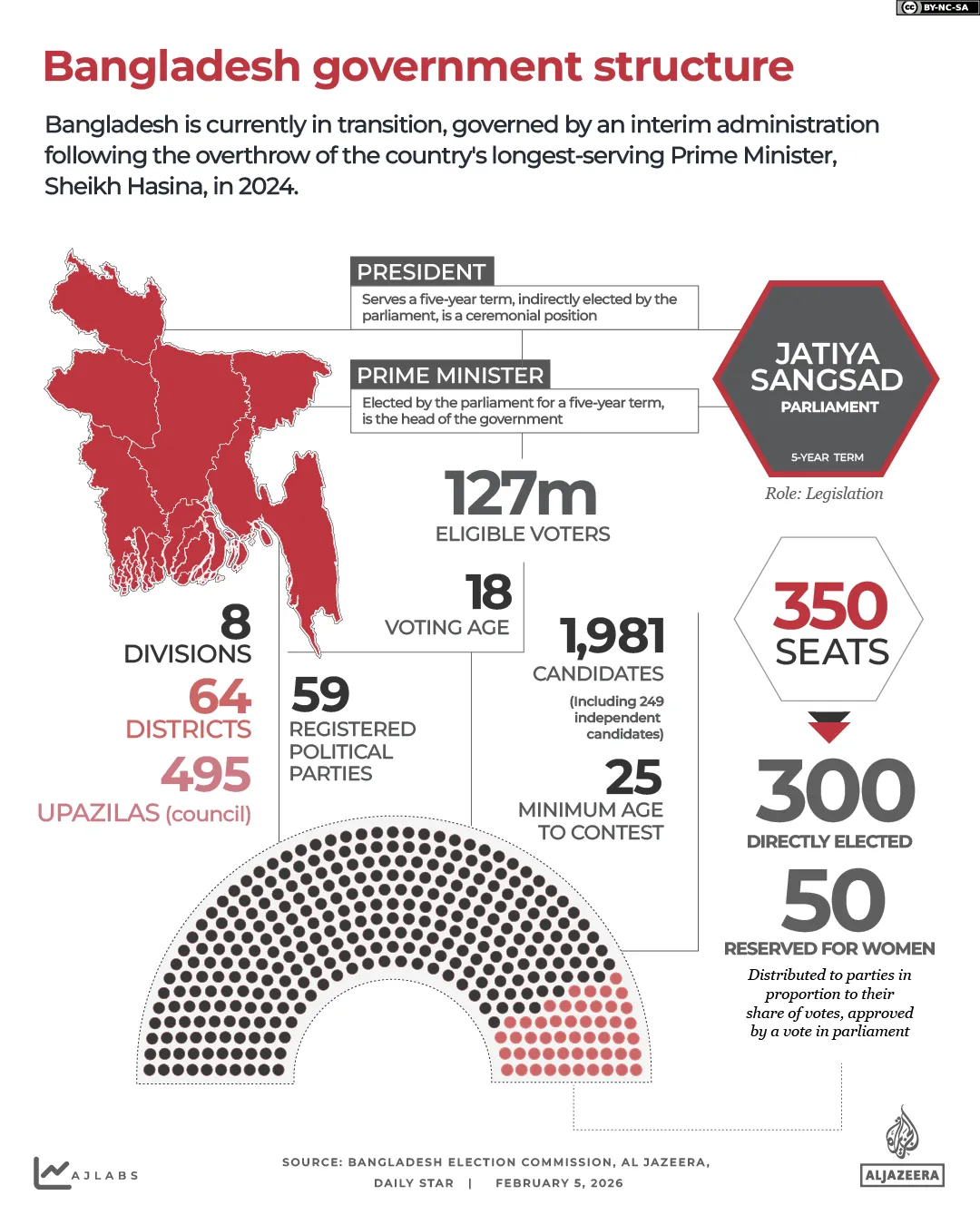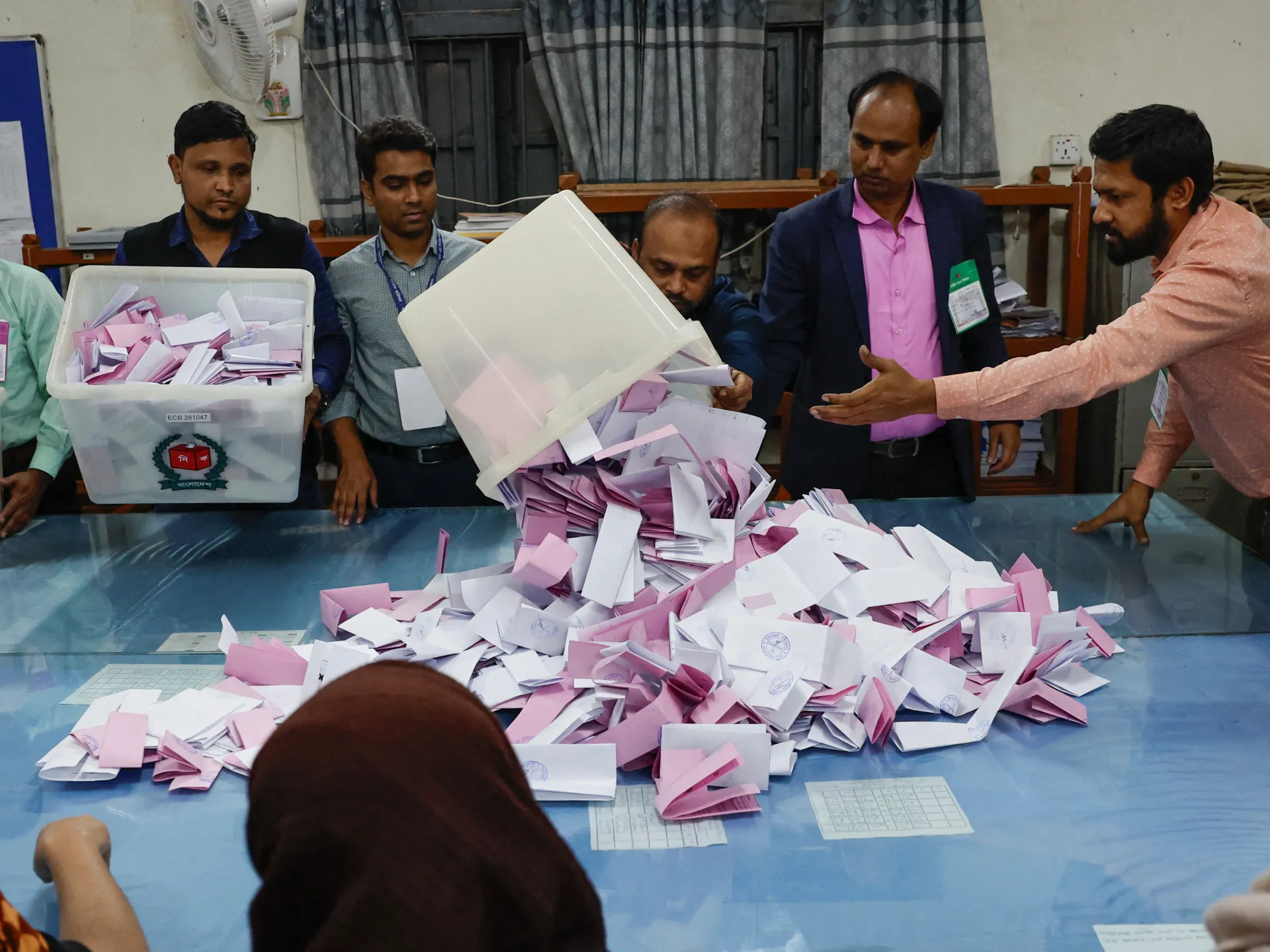In the end, the 13th parliamentary election in Bangladesh was not a revolution. It was a reckoning.
When the ballots were counted, the Bangladesh Nationalist Party (BNP) had secured a decisive victory, returning to power after years in the political wilderness under Sheikh Hasina’s 15-year rule.
Most headlines framed it as a dramatic comeback, and rightfully so. But beneath the surface, this was less a tidal wave of voter choice than a carefully navigated current. This was a contest shaped by frustration and the arithmetic of first-past-the-post (FPTP).
To understand why BNP prevailed, one must first dispense with the lazy narrative that this was a Jamaat moment squandered. When the results became clear, Bangladesh Jamaat-e-Islami (JI) secured 68 seats, while the Jamaat-led bloc secured 77 seats in parliament. That is no small feat for a party whose previous best parliamentary showing was just 18 seats in 1991. Many analysts had suggested Jamaat’s support had grown in the run-up to the poll, and the data vindicated that claim. But in an FPTP system, a swelling vote share does not automatically translate into 151 seats out of 300 elected constituencies.
This election was not driven by any momentous revolution, even though it came on the back of a mass uprising that toppled Hasina’s autocracy in August 2024. But there was no deep ideological rupture, and no permanent reordering of voter loyalties, at least not on a scale that would rupture the very fabric of the country’s electoral mindset.
And of course, it was not a national wave election, in which a single mood sweeps towards a particular party across class, gender and region. What unfolded was a hybrid: Largely a normal election with significant deviations, but a predictable outcome.
Party loyalists mostly stayed home. Swing voters mattered. And in pockets of the country, frustration with BNP’s local leadership triggered temporary defections – many of them to Jamaat or NCP.
The anger was real. After August 5, BNP’s grassroots machinery performed abysmally. Petty leaders across districts were accused of corruption and extortion. In rural market towns and urban peripheries, resentment simmered.
Voters were not merely disappointed; they were, to use the language heard in tea stalls and union parishad courtyards, “really, really pissed off”. That fury explains Jamaat’s surge. A portion of BNP loyalists and a significant share of swing voters drifted towards the promise of an “honest alternative”.
But drift is not destiny.
BNP’s base, historically broader and organisationally deeper than Jamaat’s, did not collapse. Even after defections, it remained numerically larger. BNP’s nomination strategy proved unexpectedly shrewd.
Where Jamaat fielded relatively unknown but ideologically trusted figures, BNP leaned on its old guard – candidates with entrenched name recognition and dense informal networks.
That mattered, particularly in rural Bangladesh. Urban, educated voters may be thrilled by the rhetoric of ethical governance. For them, the idea of an incorruptible, ideologically disciplined candidate resonates as a moral reset.
But rural voters are pragmatic actors. They operate within intricate patronage webs. An MP is not an abstraction; he (and it is usually he) is a broker of safety nets, jobs, stability and dispute resolution. Honesty, in isolation, does not guarantee access. Familiarity does.
Thus emerged the central voter dilemma. Disgusted with BNP’s excesses, many considered a switch. In constituencies where Jamaat fielded a well-known leader, some made it. But elsewhere, voters encountered candidates they did not know, whose “honesty” they could not verify, and whose party offered little beyond moral branding.
Faced with uncertainty, they chose the “devil” they knew.
Jamaat compounded its structural limitations with strategic missteps. Its awkward posture on women’s issues – oscillating between reassurance and dog whistles – failed to convince large segments of female voters who have, over decades, carved out expanding public roles.
Bangladesh’s social transformation is not cosmetic, and women are central to its labour force, education system and microcredit economy. A party that cannot articulate a credible vision for gender equality cannot win a national wave.
More damaging was Jamaat’s revisionist flirtation with the memory of 1971. The Liberation War is the country’s moral founding document. Attempts to soften or reinterpret Jamaat’s historical role alienated voters far beyond the secular-liberal elite.
Even conservative families drew red lines around 1971. The prevailing mode of public sentiment was probably blunt: One may forgive; one does not forget.
Yet Jamaat’s performance was still historic. Jamaat-e-Islami and its allied coalition secured 77 seats, a testament not only to its disciplined cadre but also to BNP’s own misdeeds. Extortion scandals and local arrogance pushed voters into Jamaat’s arms.
In a tightly contested FPTP landscape, even a few percentage points can flip dozens of seats. Jamaat capitalised on that anger with precision in Rajshahi, Khulna and Rangpur divisions, where its organisational muscle is strongest.
But precision is not the same as breadth. Jamaat’s surge remained regionally concentrated. Its support varied sharply by class, gender, education and age. That is the opposite of a wave election. Without uniform national momentum, being a victor in FPTP is not an easy task.
Then there was the ghost in the machine: The Awami League (AL). Much commentary underestimated its residual vote. Surveys suggested a hardcore 5 to 7 percent would never defect, but beyond that lay a larger bloc – perhaps 20 to 25 percent – either undecided or unwilling to disclose preferences. In this election, that particular bloc mattered a lot.
Pre-election field research and multiple polls indicated that many non-hardcore AL voters were breaking towards the BNP – probably not out of ideological alignment but out of instrumental rationality. They believed BNP would form the government and wanted access to services through the winning MP.
In areas where BNP’s old guard had harassed AL supporters, some abstained or flirted with Jamaat. But nationally, the gravitational pull favoured BNP. Voters wanted to be on the side of the winner. Perception became a self-fulfilling prophecy.
The four plausible scenarios before election day clarified the stakes. Without significant AL turnout, BNP would likely secure a plurality in a tight race. With moderate AL support, it would win a comfortable majority. With overwhelming AL backing, even a two-thirds majority was conceivable. Only a full-blown Jamaat wave – a cross-class, cross-gender national embrace – could have reversed the equation.
That wave never materialised.
BNP’s victory, then, is a product of structural advantage, strategic candidate selection and the rational calculations of the country’s traditional voters. It was aided by Jamaat’s self-inflicted wounds on women’s rights and historical memory. It was enabled, paradoxically, by BNP’s own local misconduct, which inflated Jamaat’s vote share but not enough to overcome FPTP mathematics.
One more footnote of this election deserves attention: The emergence of the National Citizen Party (NCP), which captured five seats. For a new party born out of an uprising, in the highly polarised political environment of the South Asian nation, that is no small accomplishment.
It signals a hunger, however modest, for alternatives outside the new binary of BNP and Jamaat. Under proportional representation, such a party might flourish. Under FPTP, five seats is both a breakthrough and a ceiling.
Bangladesh’s 13th parliamentary election was, in the end, a story of limits: The limits of anger, the limits of moral branding, the limits of revisionism, and the enduring power of organisational depth in a winner-take-all system.
BNP won not because it inspired a nation, but because it understood it.
The views expressed in this article are the author’s own and do not necessarily reflect Al Jazeera’s editorial stance.
